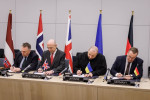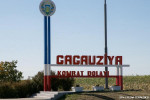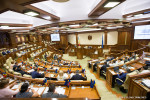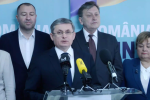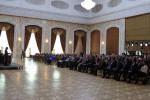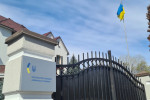
In the last two years the Government showed little transparency in making decisions, shows a monitoring report published by the National Participatory Council (NPC) on Tuesday, IPN reports.
Presenting the report, covering the period 2012-2014, in a press conference, NPC chairperson Sergiu Ostaf said that while the situation has improved in terms of the Government's openness to consult civil society, “systemic and systematic deficiencies” still exist in terms of transparency in decision-making.
733 decisions, or 32.4% of the total items included in the Government's agenda failed to fully respect the consultation procedure, that is, weren't published on the website of the agency in charge and on the public platform www.particip.gov.md, or broke the 15-day deadline stipulated in the Law on decision-making transparency. Of those, 489 items (21.6% of the total) were draft laws and regulations, and 244 (10.8%) were formal approvals of legislative initiatives from MPs.
Also, 9% of the decisions subject to anti-corruption expert assessment weren't submitted by the drafters to be assessed. Sergiu Ostaf said the reasons behind this lack of transparency are insufficient funding – as a higher degree of transparency involves greater costs – and the influence of the political factor.
The main recommendations formulated by the NPC include establishing disciplinary and other sanctions for violating transparency standards; extending transparency requirements to cover approvals of MPs' legislative initiatives as well; and developing a new IT platform to cover the entire chain of decision-making from initiation, to development, to consultation, to adoption, according to the existing good practices.
The monitoring period covered 97 Government sittings which discussed 2,260 agenda items.




